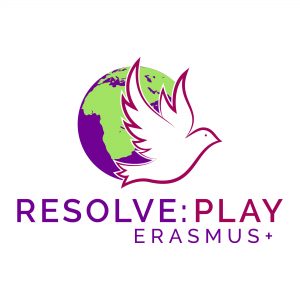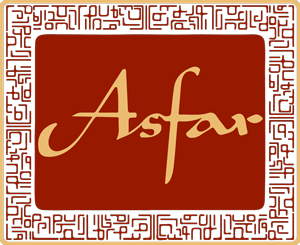Erasmus+ RESOLVE: Play

RESOLVE: Play through Understanding, Play for Change (RESOLVE: Play), is a Youth Development mobility programme, which aims to use the power of reconciliation tools such as Sport for Peace, Simulation Games and People-to-People Dialogue and ‘Play’ learning methods to resolve local and community conflict which especially affect young people in the partnership countries.
In the situation of the current world of the post-refugee crisis in Europe caused by the conflicts around the world there is a need to work on the assistance measures and mechanisms. The communities hosting refugees and IDPs, particularly when the numbers are large, clearly experience economic, social and political consequences for doing so. Community and public services are strained. Governments of countries hosting large numbers of refugees may fear that they will cause political problems, stir up ethnic grievances, and cause long-term economic and environmental
damage.
RESOLVE: Play aims to create a network of young Peacebuilders from UK, Croatia, Ukraine, Sweden, Azerbaijan, Armenia, Georgia. The thematic focus of the project will be made on migration issues and problems related to integration in our target societies.
RESOLVE: Play will focus on the following objectives in order to achieve our goal and implement a successful training course which will be based on different methods of non-formal education:
- To develop awareness about personal concepts and believes one has about minorities and challenges related to integration.
- To identify the root causes and working mechanisms which can help prevent prejudices and social exclusion towards refugees/IDPs;
- To provide the safe space for people to engage into dialogue and promote principles of tolerance and mutual understanding;
- To help participants develop new skills and competences, in facilitation of innovative methods such as labyrinth Theatre and Forum Theatre;
- To multiply gained knowledge, attitudes and competences in the local communities of the participants;
- To create an Online Library for disseminating project toolkit and for publishing projects outputs (such as promotional video of the program and various learning materials created within the project.);
- Reconciliation Network for young Peacebuilders.
The target group of our activity are young people who work in their own communities as future Community leaders and Peacebuilders. The participants should be actively involved in the development of the networks and ready to implement common actions on local and international level. Taking into account the specifics of the topic of the seminar, it will be important to invite people with refugee and/or IDP backgrounds as participants, also young leaders with practical experience in youth work, activism, promoting human rights, dialogue and integration.
The activities will be based on the innovative methods of non-formal education such as Labyrinth theatre and Forum Theatre plus the RESOLVE methods of reconciliation: Sport for Peace, Simulation Games and Interfaith-dialogue.
Participatory and experiential approaches will always be emphasized for each method. The planned session will be conducted using interactive and participatory methods which will create spaces for participants to work together to elaborate individual and common ideas of applying the knowledge and skills in their practices and setting the foundation for future cooperation. Among the planned methods will be: individual reflection, working in groups, interactive lectures, case studies, sharing
experiences, field studies, experts’ talks, debates, community mapping, world café, open space, teambuilding and integration activities, study visits, etc.
In the long-term perspective the seminar will contribute to promoting inclusive and peaceful societies. The following results and impact of the project are expected: Participants will improve their competences in issues related to refugees, integration, tolerance.
One of the very important outcomes of the project will be that participants will enrich their personal toolkit by learning about forum theatre and Labyrinth Theatre methodology, and at the same time to further build on capacities of youth workers and their NGOs to promote peaceful and intercultural dialogue and conflict transformation in their societies, as well as integration of young refugees and IDPs; the youth workers will be further empowered to prevent negative tendencies existing in their societies towards IDPs and refugees; the platform for sharing best practices will be created and it will help to build strong links with and between the relevant youth actors in this field on a global scale.

